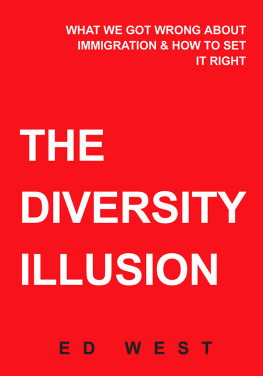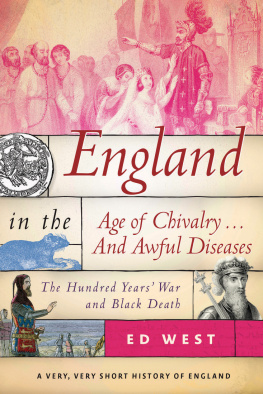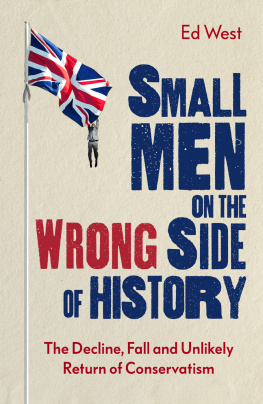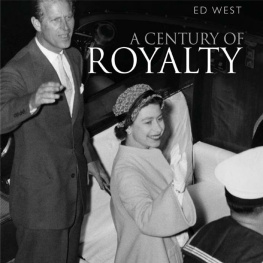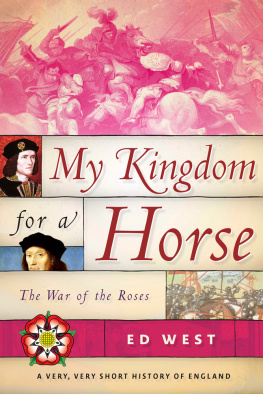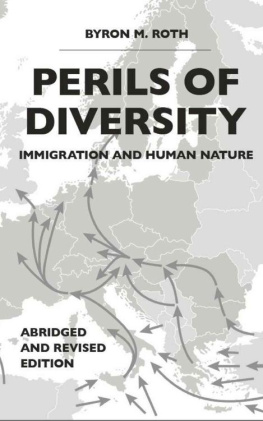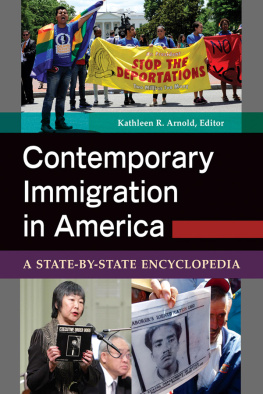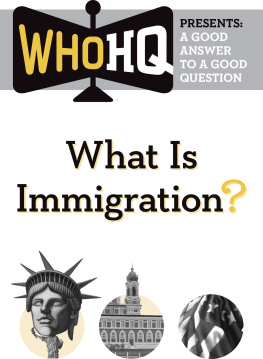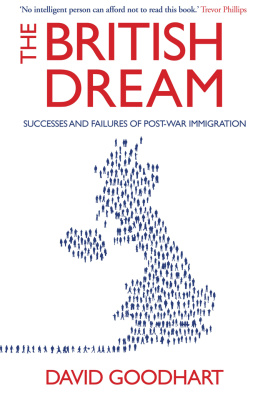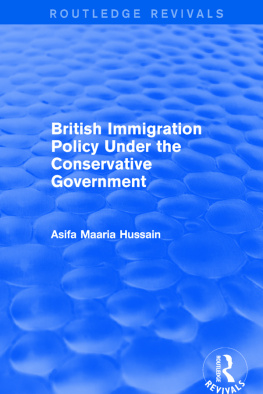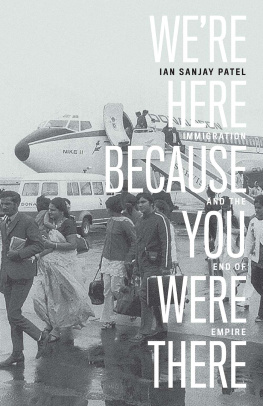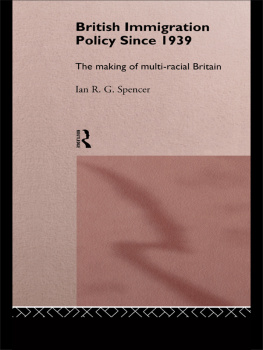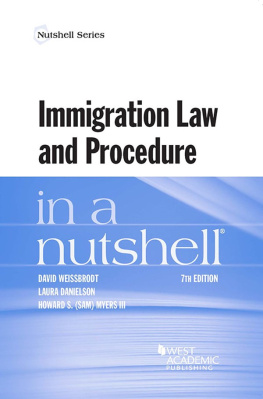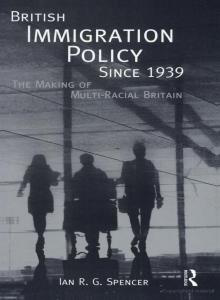47 per cent of white Britons believed immigration had damaged British society (a belief shared by 22 per cent of black and Asian Britons) and 28 per cent believed it had benefited it.
67 per cent of people believe that immigration in the past decade has had a negative effect on Britain. 11 per cent believe that it has been a good thing.
Not only does a clear majority of the British public now seem to want immigration all but stopped, it has become hugely ambivalent even about multiculturalism, post-war immigration and the very idea of diversity.
How could this happen? In this thought-provoking analysis, Ed West investigates who is responsible for Britains current state of affairs and why mass immigration has never been put to the vote. He uncovers mismanagement throughout a fifty-year state of denial by the British establishment on both the left and the right, and two recent governments increasing immigration for electoral advantage.
Ed West compellingly argues that Britain should face up to the real impact of immigration against the mounting concerns even on the Left about its consequences. The picture of modern Britain he paints is a forceful warning that a new way of thinking is required.
Ed West is a journalist whose work has appeared in the Daily Telegraph, Spectator, and The Times. He is currently Features Editor of the Catholic Herald and lives in London with his wife and two daughters.
Introduction
I was born in a multi-racial society, and one that prided itself on being multi-racial. My classmates and friends were the children of immigrants from every corner of the globe, from Pakistan, India, Iran, Armenia and the Lebanon, from Korea, China, the West Indies and Brazil, Italy, Portugal and Greece. So was I, my mother having arrived from Ireland in the 1960s. We grew up in a culture dominated by the BBC, and its cosy world of eccentric, gentle comedies, one that spoke to a diverse Commonwealth universe centred around London, and which projected a post-war British ideal of old-fashioned decency and modern liberalism. While Christianity was in steep decline, many of its values had seamlessly evolved into the new secular moral order.
Central to those values was the idea that racism was not only wrong, but the very worst evil. Our generation, born forty years after the start of the Second World War, lived in the long shadow of Auschwitz. Our history was framed by the wrongs of Nazism and colonialism, the Civil Rights movement in the United States, and the struggle against apartheid. There were anti-racist goodies and racist baddies, the Nazis, the Afrikaners and the Ku Klux Klan. Racism was not just illogical and unscientific, it was a sin, and the gravest sin; while diversity, the love of foreigners, the highest virtue. Racism was to us what sexual impropriety was to the Victorians, the wrong around which we defined our moral worth; this would make rational discussion of issues involving immigration and its after-effects very difficult.
Our other cultural influence was the United States, both looked down upon by the new British establishment and held up as an example of a multi-ethnic society. The US was a racially-divided capitalist empire run by people without Englands metropolitan sophistication, but it was also a more diverse one, vastly more so than our parochial little island. And so the US was living proof that multi-racial, multicultural democracies were the norm and the highest goal of human societies. America had taken that epic journey from slavery and genocide towards universal suffrage and civil rights, a long battle against the forces of white racism, although the battle was not over.
Britain was also a multicultural nation of immigrants, or so we were taught. There were African soldiers in Roman York, and Eskimos (or Inuit, as we were corrected) in Elizabeth Is London. Asians and blacks played an important part in British history, although until the racial enlightenment prejudice had held them back. Like America, Britain had embarked on a journey from driver of slaves to cultural imperialists to a society of racial equality. The final part of this journey was its invitation to Commonwealth citizens to settle here, and its eventual acceptance of a multi-racial society, beginning with the sailing of the Empire Windrush in 1948. The British establishment had long ago disregarded the Whig theory of history, which saw our island story as a steady journey from Popish tyranny through to Parliamentary democracy, as too triumphalist; they replaced it with an anti-racist reinterpretation of the story. Robert Winder, author of Bloody Foreigners , summed up the nations historic journey as a constant tussle between kind and cruel impulses, an exhausting two-steps-forward-one-step-back dance towards the Utopian idea of a pluralist, happy, cosmopolitan country.
England had been a dull, drab, repressed place before the arrival of the Windrush , which heralded a more exciting, vibrant, diverse society enriched beyond measure, as immigrants brought new sounds, flavours and influences. Britain had become the chicken tikka masala society, after the name of the popular dish invented in Birmingham by South Asian immigrants. Anyone who disagreed was considered to be a moral degenerate, viewed in the same way that Victorians saw the highly sexed, and indeed many of the most vocal opponents, from Oswald Mosley to John Tyndall, were sinister and strange, and their followers the ill-educated and socially inadequate rabble from the depths of the British gene pool.
After all, Britain has always been a nation of immigrants; mass immigration brings great economic benefits; diversity leads to dynamism and cross-fertilises cultural development; communities blend together and segregation declines over time; and besides which, those differences between groups enrich our lives, making people more civilised and better behaved; while opponents of such diversity are motivated by deep psychological flaws or irrational hatred.
This is the consensus we grew up with, and it has gone almost unchallenged in the media for over four decades, accepted by the most articulate and educated (and nicest) members of society. And yet all these assumptions about cultural and ethnic diversity are unproven at best, and have only become orthodoxy because of the huge taboo that has grown up around this subject. In fact, Britain has historically had little large-scale immigration, and recent changes are unprecedented; the economic benefits are small and short term; diversity leads to illiberalism and reaction, atomisation, inequality and crime; and British segregation is drifting towards American levels as its demography emulates that of the United States.
Mass immigration in England happened largely by accident. The initial benefit from the British point of view was economic, immigrants filling gaps in the labour market, but as this argument faded, and as the British wished to avoid unkindness towards their new compatriots, a largely unpopular change was justified through a rationale of the cultural and moral benefits of ethnic, religious and racial diversity. Diversity became not just the side effect of immigration policy but an official good in itself. Several decades on this has been internalised by the population, so that today the media judges the value of institutions from schools and universities to political parties and football clubs by their commitment to diversity. Every state department and quango, every charity and NGO, every local government body and major company in the country touts diversity not as a possible marginal benefit or just a quirk, but as a morally positive end in itself. And by law all bodies must ensure they promote equality and diversity. Diversity, as the Unesco statement puts it, is the very essence of our identity.

